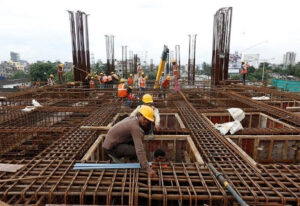BBK Electronics: Charger of Chinese Smartphone Market
3 min read
The fundamental difference between Push and Pull strategy lies in how the customer is approached by the firm. Push strategy is to push a product at a customer with an active promotion like billboards, TV advertising, and cold calling. Pull strategy pulls a customer towards a product and is about creating an ongoing relationship with the brand.
BBK electronics parent company of Oppo, Vivo, OnePlus, Realme, and now IQOO used these Push and Pull strategies for its products.
BBK Electronics in India has the largest market share of 45% (Oppo, Vivo, OnePlus, Realme). Xiaomi + POCO- 30%
BBK Electronics, a Chinese grown company has been since 1990 in China’s electronics industry, with the manufacturing of CD, MP3, and DVD players along with other household appliances. Due to legal cases for piracy charges, it went bankrupt, which then lead to diversification of its business into multiple segments.
In 2004, Duan founded Oppo with CEO Tiny Chen. Vivo, in 2009 was founded by Duan and Vivo CEO Shen Wei. OnePlus, founded by Oppo VP Pete Lau and Co-founder Carl Pie in 2013. Realme, in 2018 by Sky Li, Previous VP of Oppo electronics.
Oppo and Vivo are marketed by Push strategy through heavy advertising:
- Hoarding in every corner of India
- Oppo’s sponsorship worth Rs 1,079Cr with BCCI for the Indian national cricket team.
- Vivo was the title sponsor of the PUBG Mobile club open.
- Vivo bought the complete add space at Ghatkopar Metro “VIVO GHATKOPAR”.
Pull Marketing strategy is applied on OnePlus and Realme with:
- No ads (Later on started with one plus 3 online advertising).
- Zero commission for offline retailers because of its availability on online stores.
- No sponsorships.
IQOO was launched in India in August 2019 but hasn’t been quite influential. Indian Smartphone market share Q2 2020: Shipment declined by 51% YoY to over 18M units. Contribution to Chinese brands fell to 72% in Q2 2020 from 81% in Q1 2020. Xiaomi gained a top position with 29% and also entered the ultra-premium segment (Rs 45,000) with its Mi10 5G device.
Vivo, Realme, Oppo gained 17%, 11%, and 9% respectively with all of them struggling for sales during lockdown but looking forward to capitalizing the market with newly launched. OPPO also entered the Ultra-premium segment with its 5G flagship X2 series and wearables. OnePlus led the market with a 29% share in the premium smartphone segment followed by Samsung and Apple. OPPO had to close its smartphone factory in India amid lockdown, but after reopening, it again had to close down due to worker testing COVID+, This caused the problem with OnePlus and Realme as well since OPPO is the contract manufacturer for both these brands.
By the end of 2023, Realme hopes for sales of 100 million units, more than the 98 million smartphones sold in China in the second quarter & India is sort of like a home market to Realme, said Flora Tang, an analyst with Counterpoint in Hong Kong.
With Apple and Samsung in plans to shift their production to India, will BBK Electronics brands
survive?



